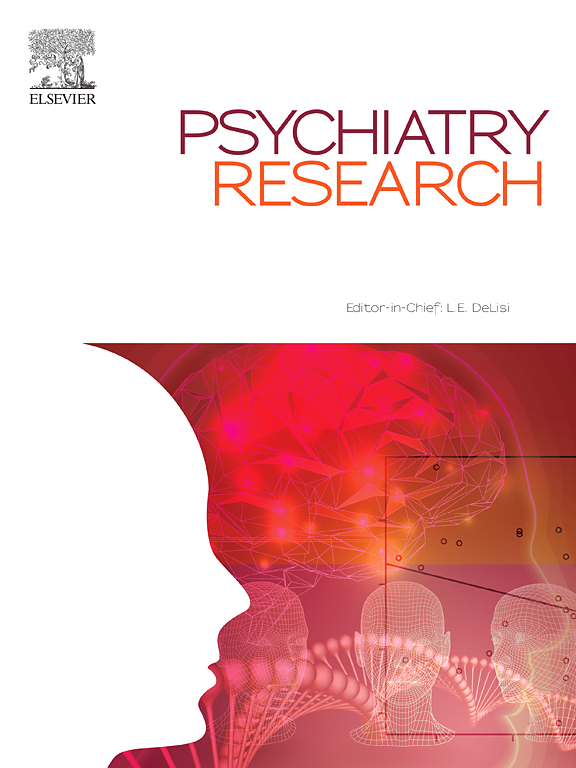Efficacy of digital therapeutic applications for cognitive training among older adults with mild cognitive impairment or dementia: A systematic review and network meta-analysis of randomized controlled trials
IF 4.2
2区 医学
Q1 PSYCHIATRY
引用次数: 0
Abstract
Various digital therapeutics (DTx), which utilize computerized cognitive training (CCT) to improve cognitive functioning, have been tested and released. However, the efficacy of these DTx approaches may be diverse. This study aims to meta-synthesize the associations between mobile applications and cognitive functioning outcomes in older adults with mild cognitive impairment (MCI) or dementia from randomized controlled trials (RCTs). We searched PubMed, EMBASE, Scopus, and Cochrane Library from the inception through the end of June 2024. We selected RCTs using mobile application interventions in older adults with MCI or dementia. Interventions and comparisons included: CCT, intensive CCT (CCT2x), computerized cognitive engagement, progressive resistance training (PRT), CCT plus medication, CCT plus PRT, and medications only. Outcomes of interest included cognitive functioning and other measures of functioning (e.g., activities of daily living [ADLs]). Network meta-analysis was conducted to estimate pooled standardized mean differences (SMDs) with corresponding 95 % confidence intervals (CIs). Of 1,189 studies extracted, 10 RCTs were included in our analysis. CCT2x demonstrated statistically significant improvements in global cognitive function (SMD, 1.21 [95 % CI, 0.69–1.73]), episodic memory (SMD, 0.87 [0.47–1.27]), and working memory (SMD, 0.93 [0.44–1.42]) when compared with controls. For ADLs, CCT significantly reduced functional impairment (SMD, -0.80 [-1.40 to -0.21]). In depressive symptoms, CCT2x was the most effective in reducing symptoms (SMD, -0.77 [-1.08 to -0.45]). Overall, the DTx may be effective in improving cognitive and other functioning outcomes in older adults with MCI or dementia.
求助全文
约1分钟内获得全文
求助全文
来源期刊

Psychiatry Research
医学-精神病学
CiteScore
17.40
自引率
1.80%
发文量
527
审稿时长
57 days
期刊介绍:
Psychiatry Research offers swift publication of comprehensive research reports and reviews within the field of psychiatry.
The scope of the journal encompasses:
Biochemical, physiological, neuroanatomic, genetic, neurocognitive, and psychosocial determinants of psychiatric disorders.
Diagnostic assessments of psychiatric disorders.
Evaluations that pursue hypotheses about the cause or causes of psychiatric diseases.
Evaluations of pharmacologic and non-pharmacologic psychiatric treatments.
Basic neuroscience studies related to animal or neurochemical models for psychiatric disorders.
Methodological advances, such as instrumentation, clinical scales, and assays directly applicable to psychiatric research.
 求助内容:
求助内容: 应助结果提醒方式:
应助结果提醒方式:


